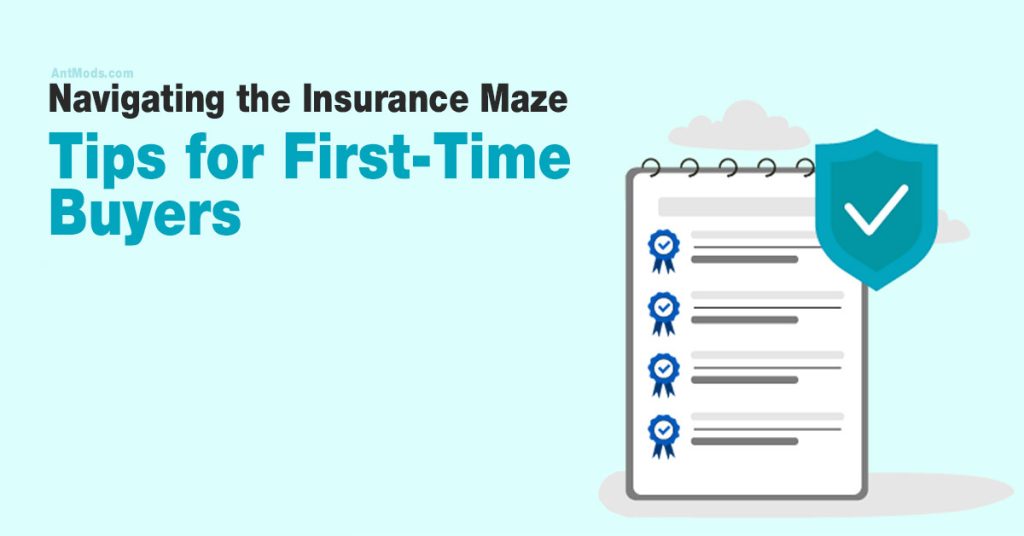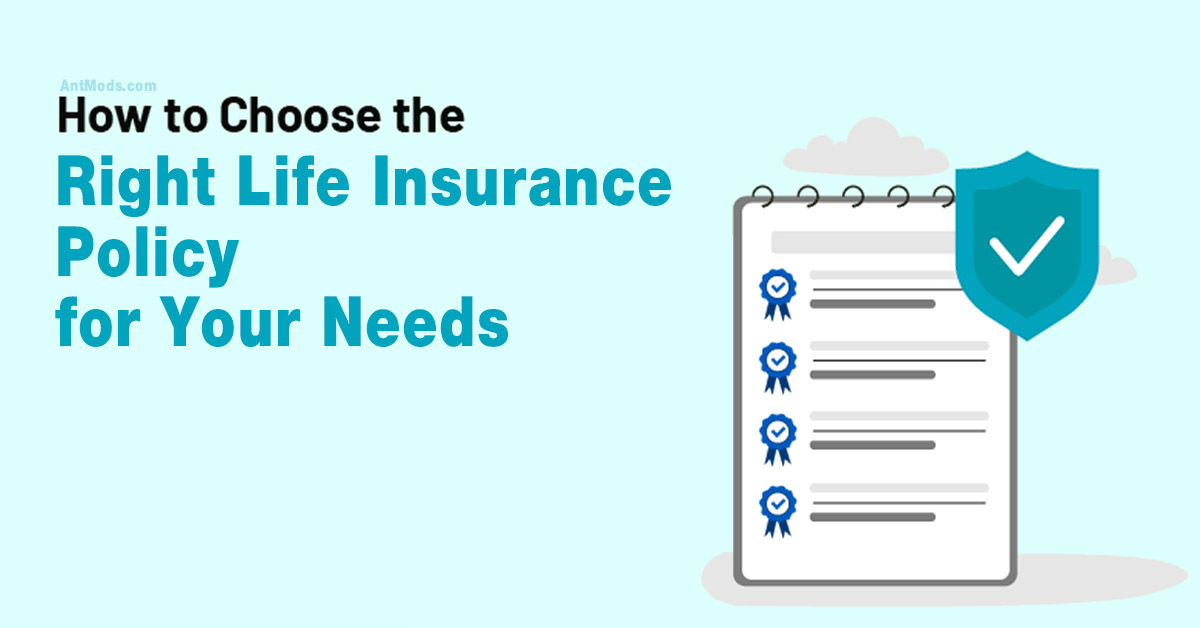Insurance can feel like a daunting subject for first-time buyers. With so many different types, jargon, and coverage options, it’s easy to get overwhelmed. However, understanding the basics of insurance and knowing how to choose the right policy for your needs can provide peace of mind and financial protection. This guide is designed to help first-time buyers navigate the insurance maze with confidence.
Understanding the Basics of Insurance

Before diving into specific types of insurance, it’s essential to grasp the general concept of insurance. At its core, insurance is a contract between you and an insurer, where you pay premiums in exchange for financial protection against specific risks. These risks could range from health issues to car accidents to natural disasters.
The key components of any insurance policy include:
- Premiums: The amount you pay regularly (monthly, quarterly, or annually) for coverage.
- Deductibles: The amount you must pay out-of-pocket before your insurance coverage kicks in.
- Coverage limits: The maximum amount your insurer will pay for a covered event.
- Exclusions: Specific situations or conditions that aren’t covered by the policy.
Understanding these basic terms is critical as they will be discussed in all types of insurance policies you encounter.
Key Types of Insurance for First-Time Buyers
When purchasing insurance for the first time, it’s important to understand the various types of insurance available and what they cover. Below are some of the most common types of insurance policies you might consider.
1. Health Insurance
Health insurance helps cover the cost of medical care, from doctor’s visits and hospital stays to prescription medications. If you’re in the U.S., it’s crucial to understand how your coverage works under the Affordable Care Act (ACA) or through private health insurers. Health insurance typically comes in the form of:
- HMO (Health Maintenance Organization): Requires you to use doctors within a specific network and get referrals for specialists.
- PPO (Preferred Provider Organization): Offers more flexibility in choosing doctors and specialists but usually at a higher premium.
For more comprehensive coverage options, learn more through resources like HealthCare.gov.
2. Auto Insurance
For vehicle owners, auto insurance is often mandatory, depending on where you live. It covers damages to your vehicle, liability for injuries or damages caused to others, and in some cases, personal injury. Types of auto insurance include:
- Liability Insurance: Covers damages and injuries you cause to others.
- Collision Insurance: Covers damage to your vehicle in an accident.
- Comprehensive Insurance: Covers non-collision damage such as theft or weather-related events.
To calculate how much coverage you need, the Insurance Information Institute offers tools and guides for understanding state requirements.
3. Homeowners and Renters Insurance
If you own a home, homeowners insurance protects your property against damage from events like fires, storms, or theft. It also covers liability in case someone is injured on your property. For renters, renters insurance covers your personal belongings and liability in case of accidents in your rental unit.
- Homeowners Insurance: Includes dwelling coverage (for structural damage), personal property coverage, and liability protection.
- Renters Insurance: Provides coverage for personal belongings, additional living expenses, and liability protection.
You can compare policy options using resources like NerdWallet’s Insurance Comparison Tool.
4. Life Insurance
Life insurance provides financial security to your loved ones in the event of your death. For first-time buyers, understanding the different types of life insurance is critical:
- Term Life Insurance: Provides coverage for a set period, usually 10, 20, or 30 years. It’s typically more affordable than permanent life insurance.
- Whole Life Insurance: Offers lifelong coverage and includes a cash value component that grows over time.
To determine the right policy for you, use an online life insurance calculator like the one offered by PolicyGenius.
5. Disability Insurance
Disability insurance helps protect your income if you’re unable to work due to injury or illness. This is often an overlooked type of insurance, but it can be critical for maintaining financial stability if an unexpected event sidelines you from your job.
Tips for First-Time Insurance Buyers
Now that you understand the types of insurance you may need, here are some essential tips to guide you through the buying process.
1. Assess Your Needs
Not everyone requires every type of insurance, so start by assessing your unique situation. For instance, if you don’t own a car, you won’t need auto insurance. Similarly, if you’re young and single with no dependents, you may not need life insurance yet.
Consider factors such as your age, health, assets, and financial responsibilities when determining the types of coverage that make the most sense for you.
2. Shop Around for the Best Deals
One of the biggest mistakes first-time insurance buyers make is going with the first policy they come across. Insurance premiums and coverage options can vary significantly between providers, so it’s essential to shop around and compare policies. You can use comparison websites like The Zebra for auto insurance or Compare.com for various insurance types.
3. Understand Policy Details
When evaluating insurance policies, don’t just focus on the premiums. Look closely at the coverage limits, deductibles, exclusions, and terms of the policy. A low premium may come with a high deductible, meaning you’ll have to pay more out-of-pocket if you need to make a claim.
Make sure to ask your insurance agent questions about anything that seems unclear. It’s better to fully understand your policy before you commit than to discover issues when you need to file a claim.
4. Consider Bundling Policies
Many insurance companies offer discounts if you purchase multiple types of insurance through them—this is known as bundling. For example, you could bundle auto and home insurance, potentially saving you money on both policies. Check with your insurer to see if they offer any bundling discounts.
5. Review Your Policy Annually
Your insurance needs can change over time. Major life events, such as getting married, buying a home, or having a child, may require adjustments to your coverage. Review your policy annually to ensure it still meets your needs, and don’t hesitate to shop around for a better deal if your current policy no longer fits.
6. Consult with an Insurance Agent
If you’re still feeling overwhelmed by the various options, consider consulting with an independent insurance agent. Independent agents aren’t tied to any one insurance company, so they can help you compare policies from different providers and find the best coverage for your needs.
Common Pitfalls to Avoid
While purchasing insurance, first-time buyers often make a few common mistakes. Being aware of these pitfalls can help you avoid them and ensure that you’re adequately protected.
1. Underinsuring to Save Money
While it may be tempting to opt for a lower level of coverage to save on premiums, this can leave you vulnerable in the event of a major loss. Always ensure that you have adequate coverage to protect your financial well-being.
2. Not Reading the Fine Print
The fine print of insurance policies can include important information about exclusions and coverage limits. Failing to read the fine print could leave you with gaps in your coverage that you weren’t aware of.
3. Overlooking Discounts
Many insurers offer discounts that can significantly reduce your premiums. For example, you might qualify for discounts for being a safe driver, having a home security system, or maintaining a good credit score. Be sure to ask your insurer about any available discounts when purchasing a policy.
Also Read:- What to Do When Your Insurance Claim is Denied.
Navigating the insurance maze as a first-time buyer can seem overwhelming, but with the right knowledge and strategy, you can secure the coverage you need to protect yourself, your loved ones, and your assets. Start by understanding the basic types of insurance, assess your needs, shop around for the best deals, and review your policy regularly. With these tips in mind, you’ll be well-equipped to make informed decisions and confidently navigate the world of insurance.





